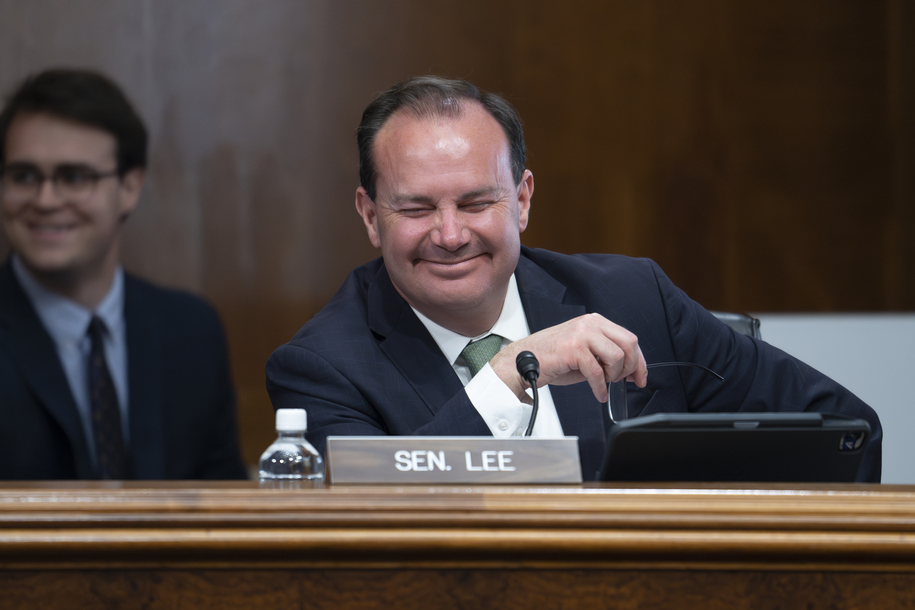Utah Republican Sen. Mike Lee is facing a torrent of criticism after he sent a disturbing tweet about the Minnesota gunman who murdered Democratic state former House Speaker Melissa Hortman and her husband, Mark, and shot Democratic state Sen. John Hoffman, and his wife, Yvette.
On Sunday, as law enforcement officers were searching for the alleged murderer Vance Boelter, Lee tweeted an image of Boelter in the rubber mask he wore when he opened fire on the lawmakers. In text alongside the disturbing image, Lee wrote, “Nightmare on Waltz Street”—a misspelled reference to Minnesota Democratic Gov. Tim Walz, who was also on a list of Democratic officials Boelter wanted to kill.
An hour earlier, Lee had also tweeted another image of Boelter in the rubber mask with the text, “This is what happens/When Marxists don’t get their way”—a message he was so proud of he pinned it to the top of his page.
Lee sent the disturbing messages—which try to further the false GOP narrative that is painting Boelter as a Democrat rather than the President Donald Trump-supporting, anti-abortion zealot he is—as other politicians were calling for politicians to tone down the rhetoric in order to avoid encouraging more radicalized people to commit violence against elected officials.
“Today we speak with one voice to express our outrage, grief, and condemnation of this horrible attack on public servants,” the entire Minnesota congressional delegation wrote in a joint bipartisan statement. “There is no place in our democracy for politically-motivated violence.”
Criticism of Lee’s response was swift.
“When there’s political violence in western democracies it’s traditionally treated as a somber event for everyone to come together. That’s disappeared. The victims were gunned down just over a day ago and a US Senator is mocking the event and hinting at a deranged conspiracy,” independent journalist Lee Fang wrote in a post on X.
Related | Right-wing media manufactures false connections in Minnesota shooting
Even Republicans condemned Lee for his horrifying response to the shooting.
“What happened to Mike Lee? He went from the Thinking Man’s Conservative to fringe-internet-troll-comma-US-Senator in a matter of just a few years,” Alyssa Farah Griffin, a former Trump administration staffer, wrote on X. “Two parents are dead. Stop and have some humanity.”
Ultimately, it’s sick the lengths Republicans are going—including a sitting U.S. senator—to gin up a false narrative absolving the Republican Party of responsibility in radicalizing Americans who commit violence in the name of furthering their right-wing agenda. If anything, it’s a tell that they may feel guilt because they do not want to be associated with the kind of monsters they’ve created, but that they are too irresponsible to accept that they are at fault for causing the climate that leads to political violence.
At the end of the day, however, this is what happens when someone like Trump is the leader of a political party.
Trump, for his part, has yet to call Walz after the horrific incident, and even attacked Walz when commenting on the shooting.
“Well, it’s a terrible thing. I think he’s a terrible governor. I think he’s a grossly incompetent person. But I may, I may call him, I may call other people too,” Trump told an ABC news reporter.
The moral rot starts at the top.
